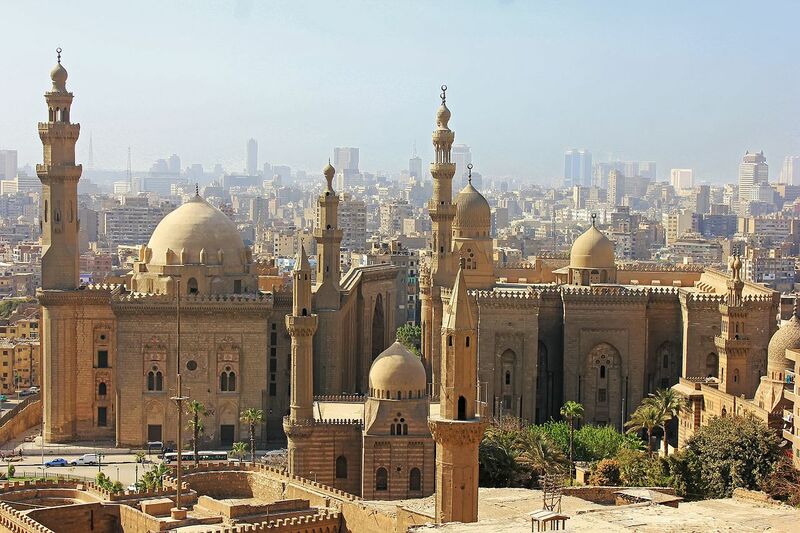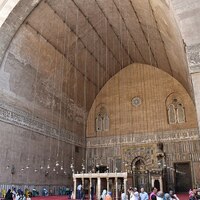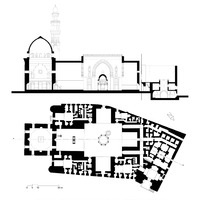Sultan Hasan complex
Date:
Built between 1356 and 1363
Location or Findspot (Modern-Day Country):
Egypt
Description:
The Sultan Hasan complex in Cairo comprises a four-iwan mosque that also functioned as madrasa and a mausoleum. The qibla wall of the mosque, the lower zones of the mausoleum interior, and the projecting northwest portal all use the ablaq technique of alternating light and dark stone. The facade incorporates two twelfth-century pilasters taken as spolia from Jerusalem.; one depicts famous buildings in that city. The interior spaces feature monumental plaster inscriptions with excerpts from the Qur'an. Sultan Hasan (r. 1347–51, 1354–61) also commissioned hundred of polychromed glass lamps to hang from the mosque's qibla iwan, and these included Qur'anic verses as well as praise for the sultan. The complex provided important amenities right after Cairo had been decimated by the Black Death.
Relevant Textbook Chapter(s):
10
Repository and Online Resources:
• Watch a video of Friday prayers at the Sultan Hasan mosque.
• Watch a youtube video of how glass can be blown into the shape of a pitcher.
Image Credits:
Wikimedia Commons; Manar al-Athar; Navid Jamali






